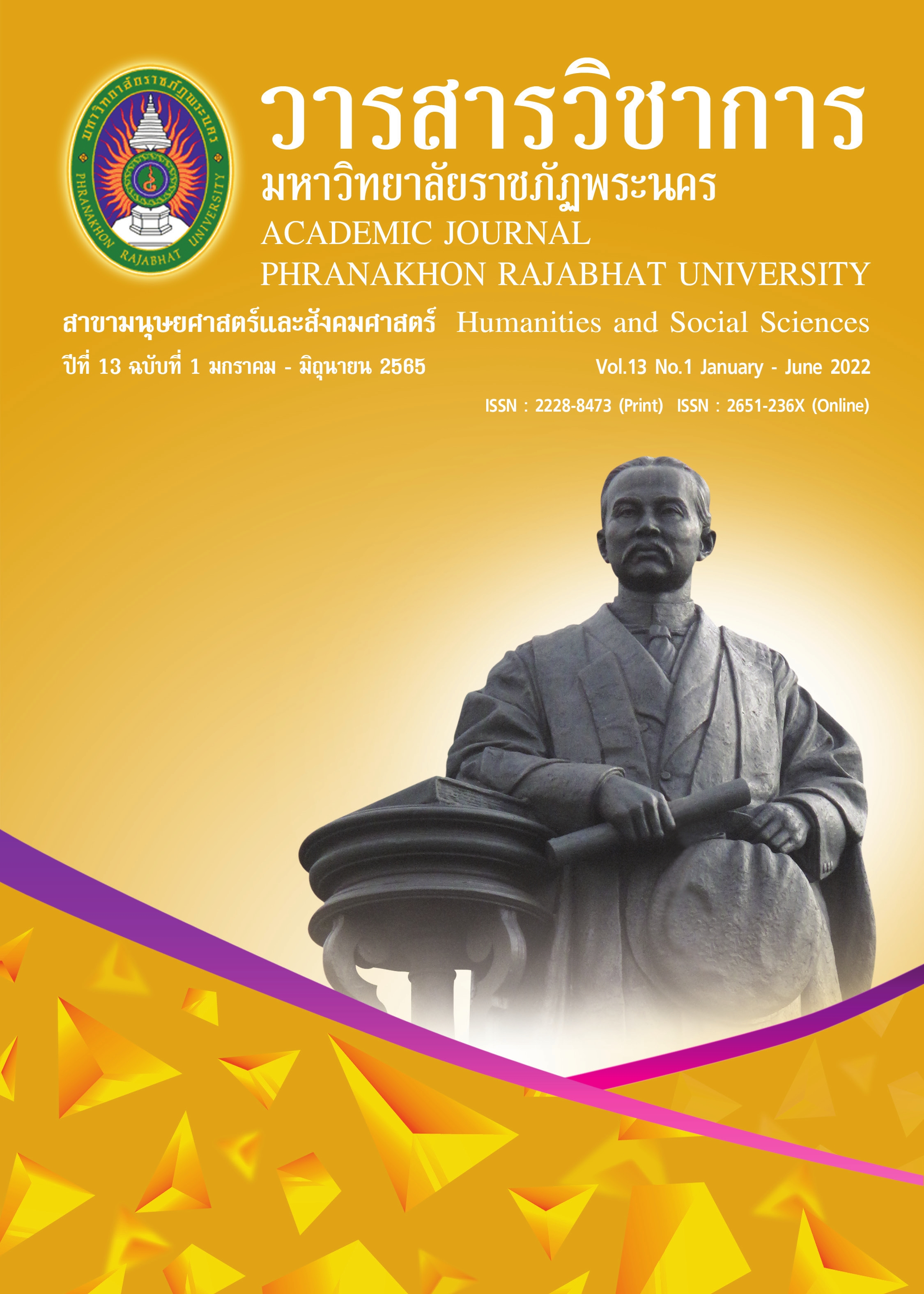THE DEVELOPMENT OF GASTRONOMY TOURISM ROUTE BY USING CULTURAL CAPITAL OF BAN WANGHAD, TALINGCHAN, BAN DAN LAN HOI DISTRICT, SUKHOTHAI PROVINCE
Keywords:
Gastronomy Tourism, Cultural Capital, Ban WanghadAbstract
This research aimed to study seasonal local food menus and to develop the routes of gastronomy tourism by using cultural capital of Ban Wanghad, Talingchan, Ban Dan Lan Hoi district, Sukhothai province. The process has been done by qualitative research and applied Community Based Research (CBR) which emphasized on collaboration of every concerned part as the center. The research target group was 20 members of Ban Wanghad Community Based Tourism Club. Data were analyzed by descriptive analysis. The result of research revealed that seasonal local food menus of Ban Wanghad used the ingredients that were available in the area. The food menus were from vegetable such as Phakwan, wild mushrooms, bamboo shoots, young mango leaves, Phak Tud and acacia etc. The menus of tilapia from natural water resources made the outstanding point for food menus by bringing the stories, wisdom and food presentation set up in containers that from nature to represent the uniqueness of lifestyle. The result of developing the routes of gastronomy tourism by using cultural capital for 1 route consisted of 8 tourist attraction spots. There were activities that allowed tourists to participate, perform, taste and touch with the ingredients from natural resources and sell the souvenirs of the local community. The result of the experiment of effectiveness of the route was found that the created route was efficient by considering from satisfaction of tourists and it was at very good level (x̅ =4.53).
References
Boniface, P. (2003). Tasting tourism: travelling for food and drink. Burlington, Vt.: Ashgate.
Chumnanchar, B. (2018). Gastronomy Tourism: Thailand’s Competitiveness.
APHEIT JOURNALS. 24(1), 103 – 116. (in Thai)
Chunkajorn, P., Chomchuenjitsin, T. & Prakenpattra, N. (2020). Creating
Motivation for Local Thai Gastronomy Tourism to Strengthen Immunity in the Way of a Healthy Community after Covid-19 Pandemic. Journal of Humanities and Social Sciences. 11(2), 143 – 154. (in Thai)
Dangsungwal, N. & Pasunon, P. (2020). Food Tourism in a Society and
Cultural Difference : Thailand and Malaysia. JOURNAL OF RATTANA PANNA. 5(2),64-79. (in Thai)
Fuengfusakul, A. (2003). Identity: literature review and conceptual framework.
Bangkok: National Research Council, Sociology National Research Council of Thailand. (in Thai)
Hall, C. M., (2003). Wine, food and tourism marketing. New York : The Haworth Hospitality Press.
Kritmanorote, K. & Disatapundhu, S. (2019). GASTRONOMY TOURISM THROUGH IDENTITY CUISINE IN 4 REGIONS. Institute of Culture and Art Journal Srinakharinwirot University. 20(2), 139-151.
Rachelle H. Saltzman. (2015). Identity and Food. In, The SAGE Encyclopedia of Food Issues. Thousand Oaks: SAGE Publications, Inc.
https://sites.google.com/site/mildzood/xat-laksn-xa-seiyn
Suanpang, P. (2016). Gastronomic Tourism. Tourism Economic. Bangkok: Ministry of Tourism and Sports. (in Thai)
Tansakul, P. (2020). Guidelines to Promoting Local Cuisine for Gastronomic Tourism: Case study of Khanab Nak Community, Pak Phanang District, Nakhon Si Thammarat Province. WMS Journal of Management Walailak University. 9(1), 81-92. (in Thai)
Wuthichomphu, S. et al. 2015. Building a network of cooperation in the study and conservation of archaeological sites at Ban Wang Hat, Taling Chan Sub-district, Ban Dan Lan Hoi District Sukhothai. Bangkok: The Thailand Research Fund (TRF). (in Thai)
Wiriyasumon, S. et al. (2018). Community-based tourism management through local research processes and upgrading the tourism management network of the lower northern communities towards creative tourism management. Bangkok: The Thailand Research Fund (TRF). (in Thai)
Yokkhun, A., Ratchaphakdee, C. & Phitchayarom, T. (2020). The Approach of
Gastronomy Tourism Development for Thailand. EAU HERITAGE JOURNAL Social Science and Humanity
Downloads
Published
How to Cite
Issue
Section
License
Copyright (c) 2022 Academic Journal Phranakhon Rajabhat University

This work is licensed under a Creative Commons Attribution-NonCommercial-NoDerivatives 4.0 International License.
"บทความวิชาการในวารสารฉบับนี้ ถือเป็นความรับผิดชอบของผู้เขียนเท่านั้น"
สงวนลิขสิทธิ์ตามพระราชบัญญัติลิขสิทธิ์




